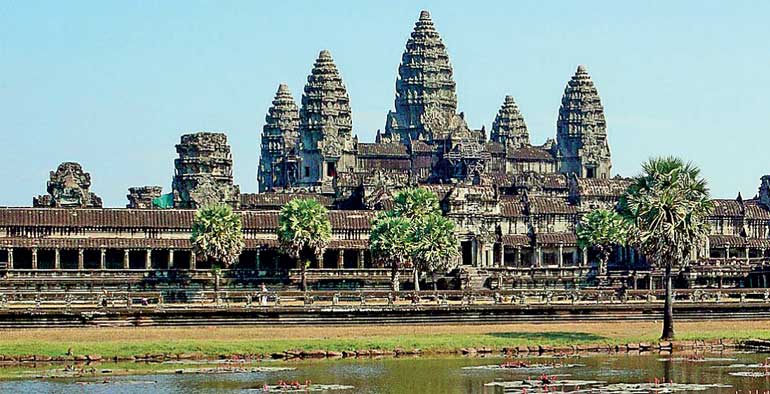Thursday Feb 26, 2026
Thursday Feb 26, 2026
Friday, 28 July 2017 00:00 - - {{hitsCtrl.values.hits}}
 AFP: A Japanese historian who helped save Cambodia’s renowned Angkor Wat temple complex was among the winners of this year’s Magsaysay Awards, widely regarded as Asia’s version of the Nobel prize, organisers said Thursday.
AFP: A Japanese historian who helped save Cambodia’s renowned Angkor Wat temple complex was among the winners of this year’s Magsaysay Awards, widely regarded as Asia’s version of the Nobel prize, organisers said Thursday.
Yoshiaki Ishizawa, 79, was honoured for decades of work in helping preserve the historic landmark after the 12th-century temple complex barely survived years of war and civil strife, the award foundation said.
Aside from rallying international support to preserve the structures, the Japanese scholar was also cited for raising awareness among Cambodians of Angkor Wat’s importance to their heritage.
“The protection and restoration of the sites of Cambodia should be carried out by the Cambodians, for the Cambodians,” the award foundation quoted him as saying.
The Philippine Educational Theater Association was also honoured for 50 years of work in developing a national theatre, staging “protest” plays during the dictatorship of the late president Ferdinand Marcos and helping other Southeast Asian countries use the arts to advocate for issues related to sexuality, HIV-AIDs and gender.
Gethsie Shanmugam, 83, a Tamil psychological counsellor, also received the award for addressing emotional damage, particularly among women and children, who suffered from violence and disasters in her native Sri Lanka.
Her work covered the brutal Sinhalese-Tamil civil war and the 2004 tsunami, the foundation noted.
Indonesian Abdon Nababan, 53, also received the award for organising indigenous people in his country to assert their rights on issues like the forest lands in their territories.
Tony Tay, 70, received the award for addressing the unseen plight of the poor in wealthy Singapore, setting up “Willing Hearts,” in 2003, a charity that distributed packed meals to the needy and has since branched out to providing optical and dental care.
Lawyer Lilia de Lima, 76, was cited for her leadership of a government agency overseeing the Philippines’ export processing zones, turning the overstaffed, inefficient institution into one that has won widespread respect while boosting exports and attracting investments, the foundation said.
The Manila-based Ramon Magsaysay Award, named after a Filipino president killed in a plane crash, was established in 1957 to honour people and groups tackling development problems in Asia.